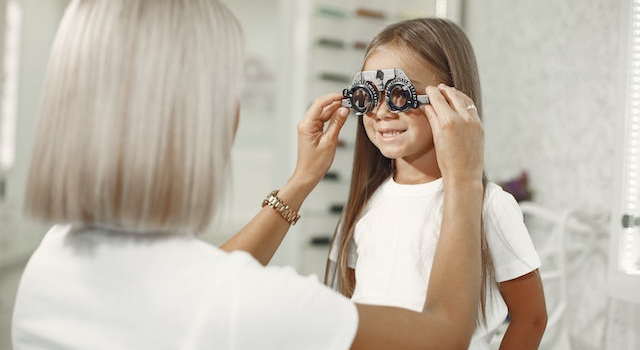
Vision screenings at school are a common practice to identify children with vision problems that could impact learning. While these screenings help detect some issues, they often fail to provide an in-depth assessment of a child's eye health.
Fortunately, at Orbit Eyecare we offer comprehensive eye exams beyond basic screenings. Our thorough evaluations detect a wide range of eye conditions and ensure your child's vision is at its best.
The Purpose of Vision Screenings
School vision screenings spot children who may have issues with their visual clarity. These screenings typically involve basic tests, such as reading an eye chart. They check for refractive errors like myopia (nearsightedness) and hyperopia (farsightedness).
While vision screenings can flag potential problems, they are not as thorough as an eye exam by an eye care professional.
Limitations of Vision Screenings
While school vision screenings can be beneficial, they have several limitations:
- Limited Scope: Vision screenings focus on visual acuity. They may not detect other eye conditions such as amblyopia (lazy eye), strabismus (crossed eyes), or convergence insufficiency. Miscommunication between the brain and the eyes causes these conditions and may go unnoticed during a basic screening.
- Lack of Depth: Screenings do not assess the overall health of the eyes. They may miss early signs of eye diseases or conditions like glaucoma, cataracts, or retinal issues that require comprehensive evaluation.
- Variability in Screening Procedures: Their effectiveness can vary depending on the equipment used and the training of the personnel conducting the screenings. Inconsistent methods can lead to inaccurate results.
- False Positives and Negatives: Vision screenings can sometimes yield false positives, indicating a problem where none exists or false negatives, missing an existing issue.
The Importance of Comprehensive Eye Exams
Regular comprehensive eye exams are essential to ensure your child's eyes are healthy and their vision is optimal for learning. Children may not always realize or express that they have vision problems, so routine eye care is key for identifying issues that could impact their learning and development.
Optometrists conduct them and include detailed tests to assess various aspects of eye health and vision.
Components of a Comprehensive Eye Exam
- Visual Acuity Test: Measures how clearly your child can see at various distances
- Refraction Test: Determines the correct prescription for eyeglasses or contact lenses
- Eye Health Evaluation: A thorough eye examination of the internal and external structures to detect any signs of disease
- Binocular Vision Assessment: Evaluates how well the eyes work together
- Depth Perception and Color Vision Tests: Assess your child's ability to perceive depth and distinguish colors accurately
Request Pediatric Eye Care Near You
While school vision screenings are a helpful first step in identifying potential vision problems, they are not a substitute for comprehensive eye exams. Request a kids' eye exam at Orbit Eyecare's Albuquerque Westside location so your child's vision remains in top condition.
